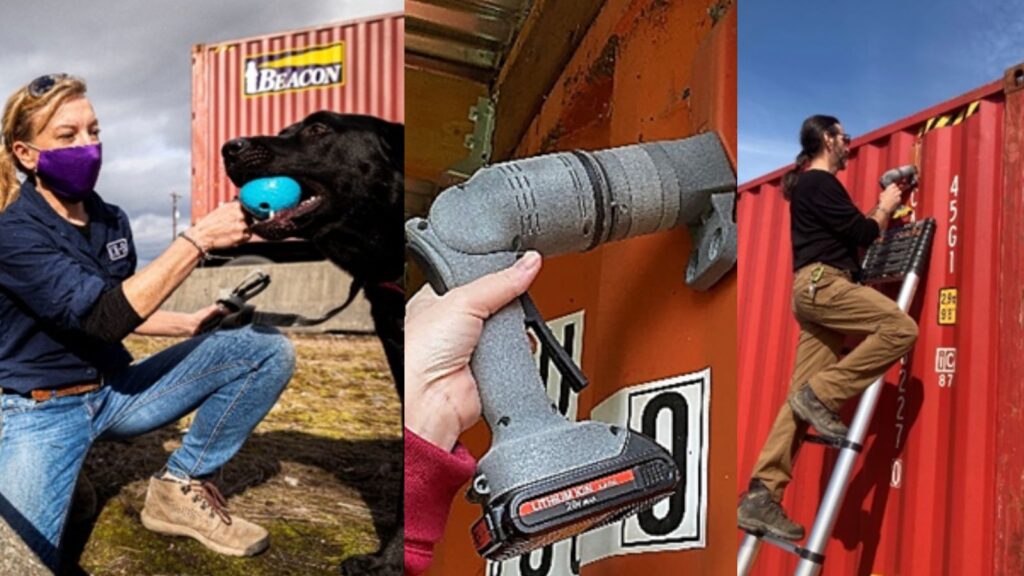Issue:
Transnational criminal organizations are capitalizing on the difficulty and expense of detecting contraband once in transit, due to huge increases in the volume of ‘legal’ shipments worldwide and pressure to keep commerce moving. Tools are needed that can easily and cost-effectively detect contraband at ports of entry, with minimal impact on port activities. Sixty five percent of wood products enter the U.S. at the Sumas border crossing at the Washington-British Columbia border, and authorities have not been targeting contraband wood, thus making it a likely target for traffickers.
Objectives:
This research aims to demonstrate proof-of-concept in an operational environment for a method using detection dogs to examine air samples for contraband. The Remote Air Sampling (RAS) device is an apparatus that is used to draw air using a canister containing an inexpensive odor-collection material that captures the contraband scent. The sealed sample canisters are taken nearby and presented to detection dogs trained to alert to specific contraband scents.

Value Proposition:
Data traceability, contribution/edit attribution, and verification/identification of data from disperse sources is all paramount in detection, response to, and synthesis of reliable operational awareness. Detection of current and yet undefined threats and associated conditions or syndromes, whether naturally occurring or synthetic in origin, remains a critical challenge for US medical and public health systems and for the populace. This project will apply a combination of best and emerging practices from the supply chain, medical informatics, and computer science domains to build a functioning testbed to allow trial and exercise of novel medical data aggregation and verification paradigms.
| Project Lead | Texas A&M University – College of Engineering – Computer Science |
| Research Team | PI: Steve Liu, Ph.D., TAMU Computer Science and Engineering Co-PI: Matt Cochran, DVM, CBTS |
| Budget | $752,622 |
| Duration | April 2023 – March 2025 |
